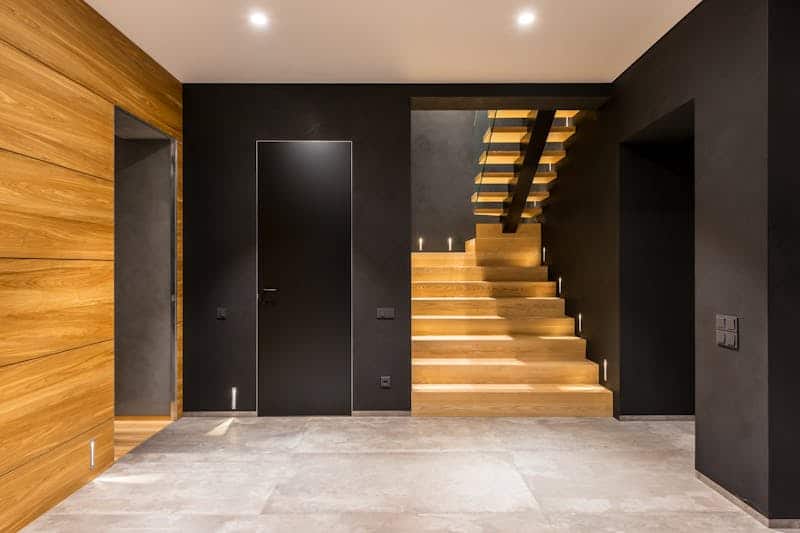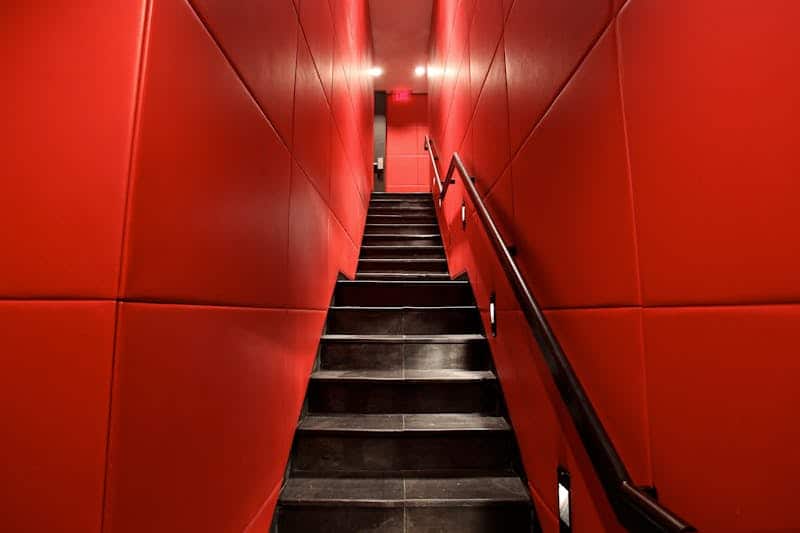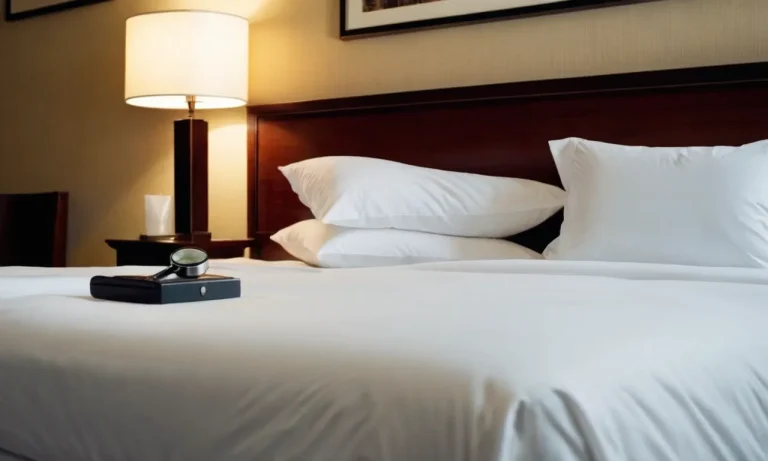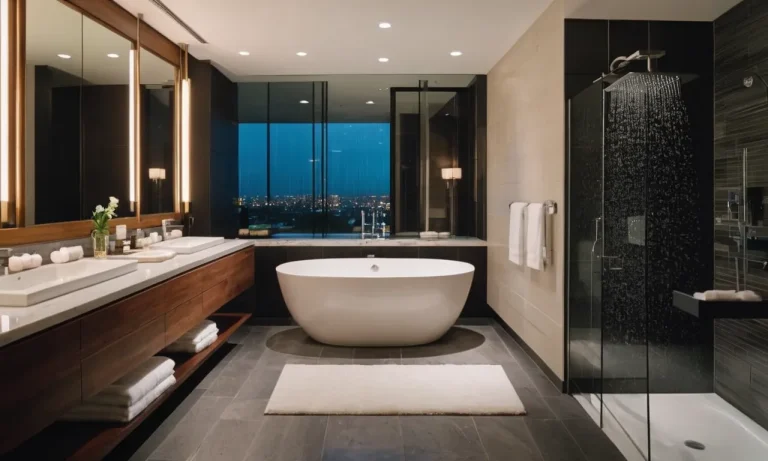The Best Floor to Stay on in a Hotel: A Comprehensive Guide
When it comes to booking a hotel room, the floor you choose can make a significant difference in your overall experience. From noise levels to accessibility, the floor you stay on can impact your comfort, safety, and enjoyment during your stay.
If you’re short on time, here’s a quick answer to your question: The best floor to stay on in a hotel typically ranges from the 3rd to the 6th floor. These floors offer a balance between convenience and quietness, while also providing a safer environment in case of emergencies.
In this comprehensive guide, we’ll explore the factors to consider when choosing the best floor to stay on in a hotel. We’ll delve into the pros and cons of different floor levels, address common concerns, and provide expert tips to help you make an informed decision.
Noise Levels: Finding the Sweet Spot
When it comes to choosing the best floor to stay on in a hotel, noise levels play a crucial role in determining your overall comfort and satisfaction.
While some guests prefer the hustle and bustle of the lower floors, others seek the tranquility of the upper levels. Striking the right balance is key to ensuring a peaceful night’s sleep and a relaxing stay.
Lower Floors and Street Noise
Staying on the lower floors of a hotel can be a double-edged sword. While it offers convenient access to the lobby, restaurants, and other amenities, it also exposes you to the potential noise from the street.
Depending on the hotel’s location, you may find yourself dealing with the sounds of traffic, pedestrians, and late-night revelers.

Upper Floors and Elevator Noise
On the other hand, opting for an upper-floor room can provide a peaceful retreat from the bustling streets below. However, it’s essential to consider the potential noise from elevators and mechanical equipment located on the roof or higher floors.
The constant whirring and dinging of elevators can be a nuisance, especially for light sleepers or those seeking a serene environment.
The Ideal Middle Ground
The solution often lies in the middle floors, where you can find a sweet spot that balances the convenience of easy access with a quieter atmosphere. These floors are typically far enough from the street to minimize outside noise but not too high to be affected by elevator commotion.
Of course, every hotel is unique, and the ideal floor may vary depending on the building’s design, location, and amenities. Don’t be afraid to ask the hotel staff for their recommendations or request a room on a specific floor that suits your preferences. After all, a good night’s sleep is essential for a truly enjoyable and rejuvenating hotel experience. 💤
| Floor Level | Potential Noise Sources | Ideal for |
|---|---|---|
| Lower Floors (1-3) | Street noise, pedestrian traffic, late-night revelers | Convenience and easy access |
| Middle Floors (4-6) | Minimal noise from outside or elevators | Peaceful and restful stay |
| Upper Floors (7+) | Elevator noise, mechanical equipment noise | Panoramic views, privacy |
Safety and Security Considerations
When it comes to choosing the best floor to stay on in a hotel, safety and security should be top priorities. After all, your hotel room is your home away from home, and you want to feel secure and protected during your stay.
Here are some key considerations to keep in mind:
Fire Safety and Emergency Evacuation
Fire safety is a critical concern in any building, and hotels are no exception. According to FEMA.gov, there are estimated 3,900 hotel and motel fires in the United States annually, causing 15 deaths, 150 injuries, and $76 million in direct property damage.
To minimize the risk of fire and ensure a safe evacuation in case of an emergency, many experts recommend staying on lower floors, ideally between the 3rd and 6th floors. These floors are generally considered the sweet spot for easy evacuation, as they are high enough to avoid potential smoke and fire from the ground level but low enough for fire truck ladders to reach.
Accessibility and Mobility Concerns
For travelers with mobility challenges or disabilities, staying on a lower floor can be crucial for easy access and evacuation. Many hotels offer accessible rooms on the ground or lower floors, ensuring that guests with mobility issues don’t have to navigate stairs or wait for elevators in an emergency.
Additionally, lower floors are often preferred by families with young children or elderly travelers, as they provide a sense of security and convenience.

Crime Prevention and Privacy
While hotel security measures have improved significantly in recent years, crime and privacy concerns remain a consideration for many travelers.
Hotel crime rates have been on the rise, with theft and assault being the most common offenses. To mitigate these risks, some experts recommend staying on floors above the 6th level, as these rooms are generally more difficult for potential intruders to access from the outside. However, it’s also essential to balance this concern with fire safety and accessibility considerations, as higher floors may pose challenges during an emergency evacuation.
Ultimately, the best floor to stay on in a hotel is a matter of personal preference and individual needs. By carefully weighing factors such as fire safety, accessibility, and crime prevention, you can make an informed decision that prioritizes your comfort, security, and peace of mind during your stay.
Don’t be afraid to communicate your concerns and preferences with the hotel staff – they are there to ensure you have an amazing and safe experience! 😊
Amenities and Convenience Factors
Proximity to Elevators and Stairs
When selecting the ideal floor in a hotel, proximity to elevators and stairs should be a top consideration. Being close to these access points can greatly enhance your convenience during your stay.
The majority of travelers prefer staying on floors that are easily accessible to elevators and stairs. This not only saves time but also reduces the risk of getting lost or feeling disoriented in a large hotel.
However, it’s important to strike a balance. While being too far from elevators and stairs can be inconvenient, staying directly next to them may result in increased noise levels from foot traffic.
A good rule of thumb is to aim for a room that’s within a 30-second walk from the elevators or stairs. This way, you’ll enjoy easy access without compromising your peace and quiet.
Pro Tip: If you have mobility concerns or are traveling with heavy luggage, request a room closer to the elevators for added convenience.
Access to Hotel Facilities and Services
Another key factor to consider is the floor’s proximity to the hotel’s amenities and services. If you plan on frequenting the hotel’s gym, spa, or restaurant, it might be wise to stay on a floor closer to these facilities. This can save you time and effort, especially if you’re short on time during your stay.
For example, most hotels often place their fitness centers and pools on lower floors, making it more convenient for guests staying on those levels. Similarly, if you’re attending a conference or event at the hotel, you may want to request a room closer to the meeting rooms or ballrooms.
Don’t forget to inquire about the hotel’s floor plan and the locations of various amenities before booking your room. This information can help you make an informed decision and ensure a more seamless experience during your stay.
Room Views and Natural Light
While not a deal-breaker for everyone, the room’s view and natural light can significantly impact your overall hotel experience.
Higher floors typically offer better views, whether it’s a stunning cityscape, a picturesque beach, or a breathtaking mountain range. Rooms with desirable views can command up higher rates than those without.
Additionally, rooms on higher floors tend to receive more natural light, creating a brighter and more inviting atmosphere.
This can be particularly beneficial if you plan to spend a significant amount of time in your room or if you prefer a well-lit space. However, it’s worth noting that some hotels may charge a premium for higher-floor rooms with better views. If this is a priority for you, be prepared to pay a bit more or inquire about any potential discounts or package deals.
Insider Tip: If you’re a light sleeper, consider requesting a room on a higher floor to avoid potential noise from the street or nearby attractions.
Personal Preferences and Special Requests
When it comes to choosing the best floor to stay on in a hotel, personal preferences and special requests play a crucial role.
Travelers with distinct needs or preferences often seek accommodations that cater to their specific requirements, ensuring a comfortable and enjoyable stay.
Traveling with Children or Pets
Families traveling with children or pets may prefer lower floors for easy access to outdoor areas and amenities like pools or playgrounds. Parents prefer staying on the second or third floor or even on the ground floor, if possible, when traveling with young children.
Lower floors also provide a sense of security and convenience, especially for families with strollers or those who need to make frequent trips to and from their rooms.
For pet owners, many hotels offer designated pet-friendly floors or rooms. These floors often have direct access to outdoor areas, making it easier to take furry companions out for walks or potty breaks.
Some hotels even provide pet amenities like dog beds, bowls, and treats. If you’re traveling with pets, be sure to inquire about the hotel’s pet policies and request a room on a pet-friendly floor.

Mobility Challenges and Accessibility Needs
Travelers with mobility challenges or disabilities may require specific accommodations. Many hotels have designated accessible rooms on lower floors, ensuring easy access to elevators and common areas. These rooms often feature wider doorways, roll-in showers, grab bars, and other amenities designed for those with limited mobility.
According to the Americans with Disabilities Act (ADA), hotels are required to provide accessible rooms and facilities for guests with disabilities. If you have mobility challenges or accessibility needs, it’s essential to communicate your requirements to the hotel in advance. They can then recommend the most suitable floor and room options to ensure a comfortable and hassle-free stay. 😊
Specific Room Preferences (e.g., Corner Rooms, Connecting Rooms)
Some travelers have specific room preferences, such as corner rooms or connecting rooms. Corner rooms often offer more windows and natural light, providing a more spacious and airy feel. These rooms are typically in high demand, so it’s best to request them early when booking your stay.
Connecting rooms can be a great option for larger groups or families who want to stay together while maintaining some privacy. These rooms are usually found on lower floors for easier access and convenience. However, availability may be limited, so it’s advisable to make your request well in advance.
Ultimately, the best floor to stay on in a hotel depends on your personal preferences and specific needs. Don’t hesitate to communicate your requests to the hotel staff, as they are often happy to accommodate and ensure you have an amazing stay!
Expert Tips and Recommendations
Communicating Your Preferences to the Hotel
When it comes to securing the best floor in a hotel, clear communication with the staff is key. Don’t be afraid to politely express your preferences during the booking process or upon check-in. Many hotels will accommodate requests for higher or lower floors, provided they have availability.
If you’re looking for a quieter experience, consider requesting a room on an upper floor, away from the noise of the lobby and street traffic. Conversely, if you have mobility concerns, a lower floor might be more suitable.
It’s also advisable to inquire about the hotel’s policies regarding room assignments. Some establishments prioritize loyalty program members or offer upgraded rooms for an additional fee. By understanding their procedures, you can better navigate the system and increase your chances of landing your desired floor.
Requesting Room Changes if Necessary
Despite your best efforts, there may be instances where you’re not entirely satisfied with your initial room assignment. In such cases, don’t hesitate to politely request a room change.
Most reputable hotels will try their best to accommodate reasonable requests, as long as availability permits. However, it’s essential to approach the situation with patience and understanding, as the hotel staff may be juggling multiple demands.
If you encounter any issues with your room, such as noise disturbances or malfunctioning amenities, promptly inform the front desk. They may be able to relocate you to a more suitable room or floor.
Considering Hotel Policies and Ratings
Before booking your stay, it’s wise to research the hotel’s policies and ratings regarding room assignments and guest satisfaction.
Many travel websites, such as Booking.com and Expedia, provide detailed reviews from previous guests, including insights into room quality and floor preferences. These reviews can be invaluable in helping you make an informed decision.
Additionally, consider the hotel’s rating and reputation. Higher-rated hotels are more likely to have well-defined policies and procedures in place to ensure guest satisfaction. They may also offer more options for room preferences and upgrades.
By following these expert tips and recommendations, you’ll be better equipped to secure the best floor for your hotel stay, ensuring a comfortable and enjoyable experience. Remember, clear communication, flexibility, and research are key to maximizing your chances of landing your desired room and floor.
Conclusion
Choosing the best floor to stay on in a hotel is a personal decision that depends on various factors, including noise levels, safety concerns, accessibility needs, and personal preferences. By considering the pros and cons of different floor levels and following expert tips, you can make an informed choice that enhances your overall hotel experience.
Remember, the ideal floor may vary from hotel to hotel, so it’s essential to communicate your preferences and needs to the hotel staff. Don’t hesitate to request a room change if your initial accommodation doesn’t meet your expectations.
With careful planning and open communication, you can ensure a comfortable and enjoyable stay, no matter which floor you choose.






